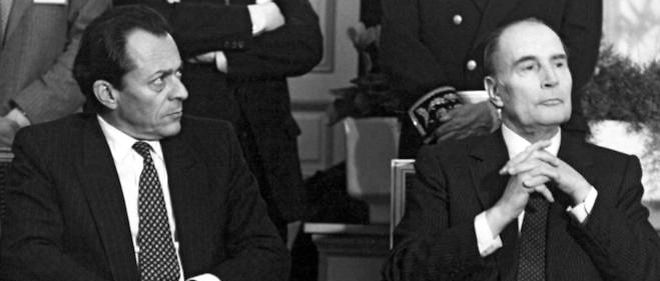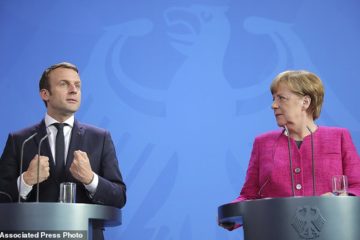The man finishes off his speech with a rebellious call: “For today, long live the Republic! For tomorrow, long live the left!” What he did not mean: long live the Socialist Party. Three months after this speech, Benoît Hamon quit that very party for which he had ran for French president in April 2017 and achieved the worst result in its history. 6% of the votes sufficed only for fifth place, behind basically every other major party. Hamon’s first reaction – said speech – was defiant, his last one – his resignation – disillusioned: one of France’s largest parties seemed to be doomed to die. How could that happen?
The French party system is quite short-lived. Parties are formed and dissolved almost on a regular basis. In this environment, the Parti Socialiste (PS), the Socialist Party, is a comparatively old party. It was founded in 1969 as a merger of smaller left-wing parties to stand up to the dominating Gaullist-Conservative parties of the time. A promising project: at its first presidential elections, François Mitterrand stood as a candidate and won 49% of the votes right away. At his second attempt – seven years later – he was successful. Mitterrand became the first socialist president of the Fifth Republic and remained in that position for two terms until 1995. The following years, French politics became largely a battle between the PS on the left and its counterparts on the centre-right. The latter changed names and shapes, from the Rassemblement pour la Republique over the Union pour un Mouvement Populaire to the current Les Republicains. The former stayed largely the same throughout.

Now, the PS is in a shattered state. After the disastrous presidential elections in April and equally disappointing parliamentary elections in June, it was left with a fraction of the seats it previously held in both the National Assembly and the Senate. Presidential candidate Benoît Hamon left, so has former prime minister Manuel Valls, who was a leading figure of the party’s moderate wing. Moreover, first secretary Jean-Christophe Cambadélis resigned without party veteran Bernard Cazeneuve accepting to take over his post, and other representatives have joined Emmanuel Macron’s rival government. In short, the PS has at breakneck speed lost many of their major personnel. Provisionally, a 28-member directorate took over the leadership. But they are facing difficult times. Last month, the PS sold its fancy Parisian party headquarters to a property developer. The money needed for the maintenance of the luxurious building would be invested into political work, they claimed. The implication is that the party has severe financial problems. Fewer seats in parliament also mean fewer subsidies from the state. Sources speculate that it is by no means certain whether the PS can cover the expenses of the 2022 presidential election campaign.
How did the flagship of the French left end up like this? The short answer is François Hollande. In 2012, he led the PS to its first presidency since Mitterrand. The party’s bad election results have been partially blamed on his unpopularity. Hollande seemed ill-fated from the start. His record includes a disclosed love affair, clumsy public appearances, controversial policies, and the perceived inability to cope with France’s unemployment problem. Although he did not run for a second term, Hollande’s image still dragged the party down.
However, the reasons lie deeper. Over time, the party has united many different factions. Most of them are reducible to traditional Socialism on one hand and the moderate centre-left on the other. The rivalry between its respective leading figures, Mitterrand and Michel Rocard, had fundamentally shaped the party. The former initially represented the socialist doctrine of a state-controlled economy. The latter argued for socialism with a more liberal face. Mustering their forces under the umbrella of the PS, both movements were much stronger. Both wings attracted voters to the party that the other would not have reached alone. Keeping both wings together has been a challenge nonetheless. One that might have been lost now.

Why now? This is where indeed François Hollande comes in. While he saw himself as a Macron-type part of the moderate wing, his actions seemed to many not as balanced, but indecisive. Policies like the 75% top tax rate were established and clandestinely scrapped again after public backlash. Others were watered down beyond recognition like the liberalisation of labour laws. “Monsieur ni oui ni non” — “Mister neither yes nor no” — as Hollande has been titled, satisfied neither the Socialists nor the moderates. To his misfortune, it was just now that two charismatic alternatives emerged to the left and right of him: the trade union leader Jean-Luc Mélenchon and the former Business Secretary Emmanuel Macron. Mélenchon and his left-wing coalition La France Insoumise (“Unbowed France”) attracted many people, especially the young, with a modern campaign and dynamic socialist idealism. Macron and his movement En marche! (“On the move”) were popular among left and right-wing centrists. Suddenly, socialist and moderate PS voters had options that matched their respective preferences much more purely and offered prospects of success–unlike the unpopular Hollande. The 2017 elections can thus be interpreted as the breakup of the compromise between the parties’ wings that had stabilised it for so long. In this sense, Hollande was not the beginning of the decline of the PS, just the final cause for its innate contradictions to explode.
The future of the party is uncertain. A new leader is supposed to be elected next spring. New ideas are wanted. Optimists believe that there is still a political space between Mélenchon and Macron to be covered. Correspondingly, the parliamentary group of the PS now calls itself the “New Left”, which seems ironic in every sense. It is yet unclear how this new left should look like. “Forums of renovation” have been installed on the party’s website. However, the questions that the party directs at its members in these forums seem helpless. “What are the values and the identity of socialism?” is one of them. To the left and right of the PS, Mélenchon and Macron are giving powerful answers.
Benoît Hamon could thus not have been more wrong: the left in France is alive today. But the Socialist Party is battling for its very existence.


